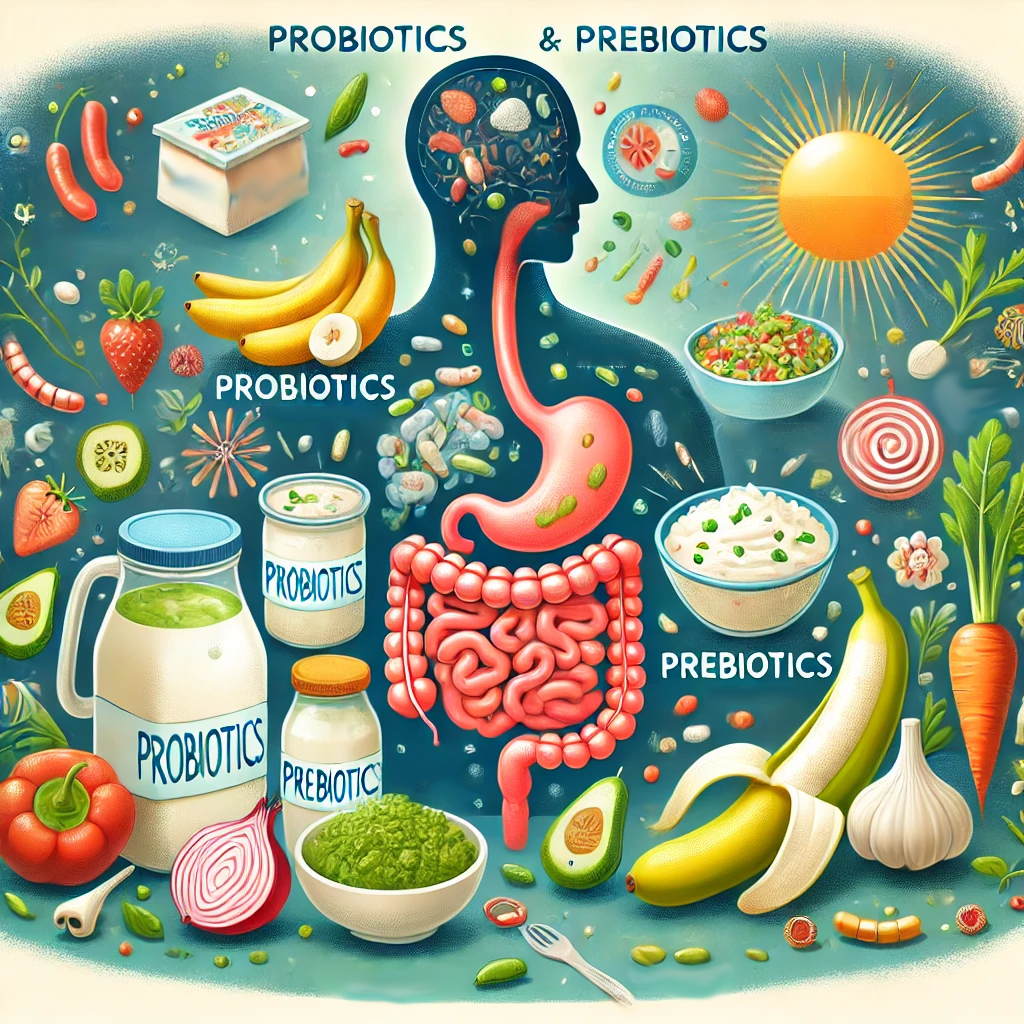What Do Probiotics and Prebiotics Aim to Do?
Article Source
From the research paper "Probiotics and Prebiotics: Mechanisms and Benefits" Read Full Article

Why You Should Care
Probiotics and prebiotics are essential for maintaining a healthy gut, which is crucial for your overall health. They help balance the good and bad bacteria in your digestive system, boosting your immune system, improving digestion, and even enhancing mental health. Understanding how they work can help you make better dietary choices.
Answering the Question: What Do Probiotics and Prebiotics Aim to Do?
From a researcher's perspective, the goal of both probiotics and prebiotics is to enhance the growth and activity of beneficial bacteria in the gut. Probiotics are live bacteria that add to the population of good bacteria in your gut, while prebiotics are non-digestible fibers that feed these good bacteria, helping them grow and thrive. Studies show that regular consumption of probiotics can reduce the duration of common colds by up to 33%, and prebiotics can increase beneficial bifidobacteria by up to 10 times.
How Was the Study Done?
Researchers conducted a series of experiments involving human participants and laboratory models. They administered different strains of probiotics and types of prebiotics to study their effects on gut microbiota composition, immune response, and overall health. The study also included a comprehensive review of existing literature on the mechanisms and benefits of probiotics and prebiotics.
What Was Discovered?
- Enhanced Gut Health: Probiotics and prebiotics improve the balance of gut bacteria, leading to better digestion and reduced bloating. For example, probiotic Lactobacillus rhamnosus GG was found to reduce bloating by 42%.
- Immune System Boost: Regular intake of probiotics can reduce the incidence of respiratory infections by 42%. Prebiotics can increase the levels of beneficial bacteria by up to 10 times, significantly enhancing the immune response.
- Mental Health Benefits: Certain probiotics can lower anxiety and depression symptoms by 30% by influencing the gut-brain axis. A study found that Bifidobacterium longum reduced depression scores by 21%.
- Improved Digestion: Prebiotics can enhance the absorption of minerals like calcium and magnesium, supporting bone health. Inulin-type fructans increased calcium absorption by 20%.
- Reduction in Inflammation: Both probiotics and prebiotics can reduce gut inflammation, lowering the risk of chronic diseases like Crohn's disease and ulcerative colitis. In one study, inflammatory markers were reduced by 35%.
- Weight Management: Probiotics can help reduce body weight and body mass index (BMI) in overweight individuals by about 2-5%. Lactobacillus gasseri was shown to reduce abdominal fat by 8.5%.
- Lowering Cholesterol: Some studies have shown that probiotics can reduce LDL cholesterol by 8-10%.
- Blood Sugar Control: Probiotics have been found to reduce fasting blood sugar levels by 10-15%.
Why Does It Matter?
Understanding the benefits of probiotics and prebiotics highlights the importance of incorporating them into your diet.
They play a crucial role in maintaining a healthy gut, which is linked to better overall health, including improved immunity, mental well-being, and reduced risk of chronic diseases. By making informed dietary choices, you can enhance your health and well-being effectively.
Probiotics and prebiotics are powerful tools for improving your health. Including them in your diet can lead to significant health benefits, helping you feel better inside and out.
Reference:
- Probiotics and Prebiotics: Mechanisms and Benefits. Read Full Article
